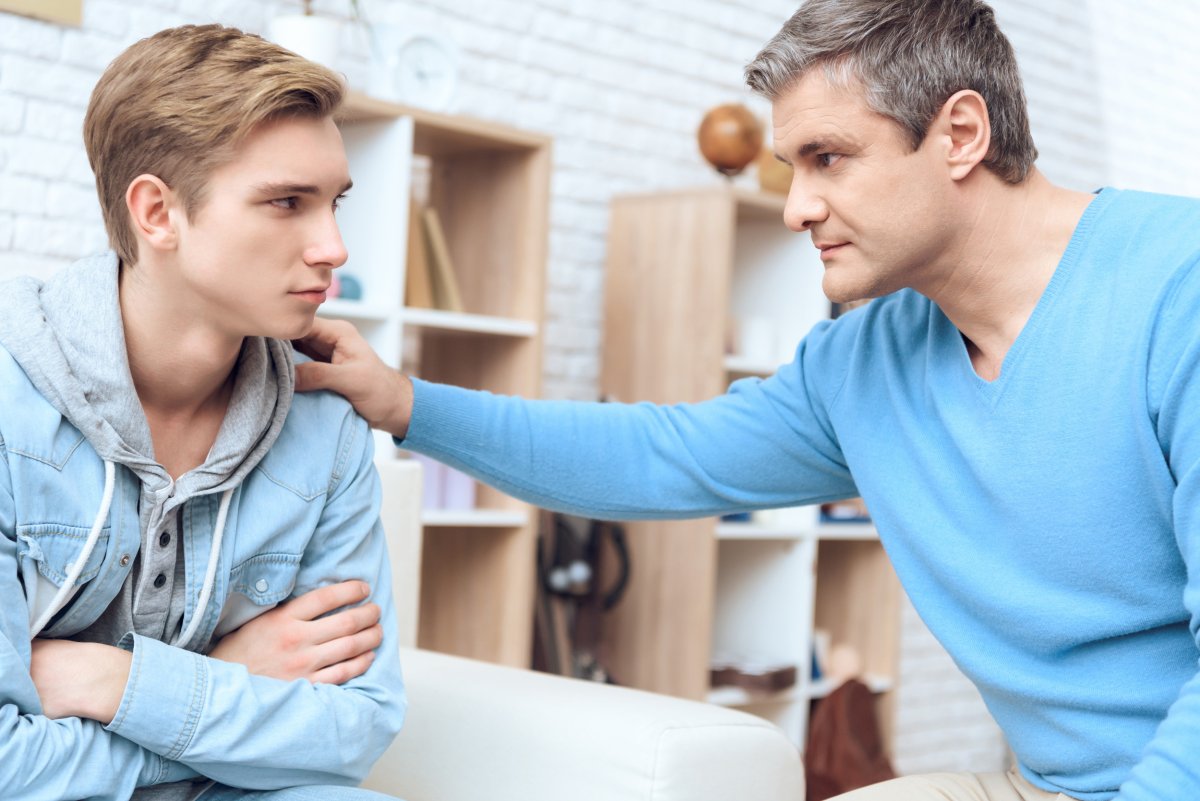Following the school shooting at Robb Elementary school in Uvalde, Texas, this week parents have been confronted with the issue of how to talk to their children about it.
Newsweek spoke to Linda Reddy, a professor in the School Psychology Doctoral Program at Graduate School of Applied and Professional Psychology and Maurice Elias, a professor of psychology and director of the Rutgers Social-Emotional and Character Development Lab about the tough questions ahead for parents.
Both experts emphasized that parents should not shy away from the opportunity to reassure their children and connect with them following this tragic event.
The pair also reflected on the mental state of Americans, changes that can have a positive influence on society, ways to potentially prevent future incidents, and how to deal with the grief and fear following nationally significant tragedies.

How to Have the Conversation
"[The how to talk your kids about it] answer is a little different depending on how close you are to the situation, Elias said. "For most parents, what they need to remember is that when their children are asking about this, it is because they want reassurance."
He continued: "They don't want details, the vast majority of kids basically want to know 'I'm okay,' and that 'this is not likely to happen to me, my school or my community.' That all happens to be very true, these are not things that are likely to happen, thank goodness."
Elias added that one of the key things to remember is to give reassurance and "read the feelings of their child." If they feel satisfied then the parents should be satisfied.
Older children, above the age of 10, may want more information as they may have access to other streams of information like the news and social media. Elias said that these children will also want reassurance, but as these children become closer to adult age, they will need to begin to see the world how it is and understand it.
"In that case, it is important to offer to talk to students about it. A lot of time students will have misimpressions," Elias continued. "Students of an adolescent age are prone, naturally prone, to be a bit exaggerative, so what that means so they may feel more vulnerable than they really are, here parents can reassure them."
The Importance of Community
Reddy also emphasized the importance of communities coming together as a response to this tragic event and as a preventative action against future shootings. Both psychologists highlighted that children across the country need to feel valued and feel that they have an opportunity to express how they are feeling following this incident.
"When something like this happens, there is a tendency for people to go into their homes and huddle with their families, which is a good thing. But there is nothing more restorative and reparative to children, parents and communities than to come together and to create a community action," Reddy said.
"Create a community action and commitment towards a common cause, in this case, to do something positive," she continued. "They can do this, communities can do this all over the country within their schools [and] school leaders can help facilitate this.
"Not just remembrances but what can we do to come together to get talks, speakers, to have restorative groups and circles," Reddy said. "One of the first things people need to do is not talk about just this tragedy but to talk about how they are feeling about what just happened. But you need to create space for people to talk and to feel safe to do this."
Sharing Emotions
Elias suggested that schools across America should consider setting time aside at the start of the day to discuss how they are feeling to help improve their mental well-being.
"Schools that have built into their day social and emotional time, normally at the beginning of the day, have an opportunity to share feelings about what is going on in their lives. [This] gives a natural opportunity for kids to talk about things that are troubling them," Elias said.
"When they can do that at the start of the school day, they don't carry those things with them for the rest of the day, in the same way. So we want to think ahead, we want to think about how we can help our kids be resilient in the face of what we know now but also of things that we know are going to happen in the future," he said.
"Children will get better at speaking about their feelings, expressing their concerns, and knowing that in a community it is safe and okay to do that."
Following the shooting in Uvalde, the debate over gun control in the United States has been reignited. President Joe Biden addressed the issue in a speech on Tuesday and said it was time America stood up to the gun manufacturing industry.
Biden also reflected on the frequency of mass shootings in America and called for action to prevent these incidents in the future.
Uncommon Knowledge
Newsweek is committed to challenging conventional wisdom and finding connections in the search for common ground.
Newsweek is committed to challenging conventional wisdom and finding connections in the search for common ground.
About the writer
Gerrard Kaonga is a Newsweek U.S. News Reporter and is based in London, U.K. His focus is reporting on U.S. ... Read more
To read how Newsweek uses AI as a newsroom tool, Click here.








